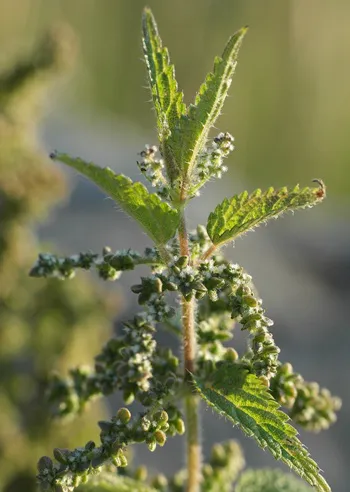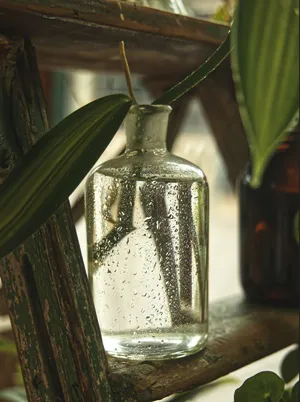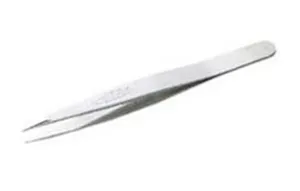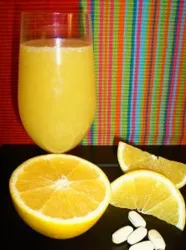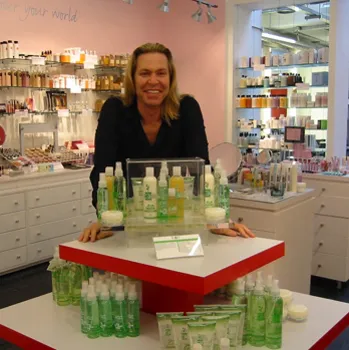
Nettle: Hair's Herbal Helper
IntroductionMany years ago when I lived in St. Louis, I met two women, Pat and Toni, who made their living growing herbs. The women lived on a farm that was located several miles outside of the city proper. On their farm they grew all sorts of herbs that they harvested for a variety of purposes including creating herbal teas and tinctures to developing hair and beauty formulas. One day they brought me a bag of fresh nettle that they had harvested. Although I was pleased by their thoughtfulness, I was also horrified because nettle grew wild in my backyard and was a constant challenge to remove. Even more annoying, the nettle that grew in my St. Louis back yard was finely toothed and covered with tiny little hairs on the underside of the leaves and stems. The tiny little hairs or stickers would sting when touched. The nettle plant, also known as stinging nettle, garden nettle and a combination of the two, blooms with flowers in the summer months. While the average Nettle plant can grow to approximately 3 feet in height, in some climates, like those found in California, it may grow as tall as 8 or 9 feet. Nettle can be found growing all over the world. Nettle For Leg StimulationIn her famous herbal book, Jeanne Rose's Kitchen Cosmetics, Ms. Rose points out that nettle has been around since the time of Julius Caesar and his Roman army. In her section dealing with Nettle, Jeanne explains that Roman soldiers serving under Caesar used nettle plants and nettle seeds to help stimulate leg circulation in cold climates. Although the Roman army used the nettle herb to help with circulation, nettle has been used by many different people throughout history for a variety of ailments and overall uses. Nettle teas, tinctures and remedies have been used to treat liver and kidney problems, to help with problems related to overweight, for childbirth, to provide general overall relaxation, and for hair concerns.
Nettle For Hair GrowthI considered Nettle to be a pesky weed while Pat and Toni considered it to be a very beneficial herb that could be used to nourish hair, encouraging natural growth. In reality the herb is very rich in Vitamin A and C. It also provides an excellent source of calcium and iron. Over the years since I have been studying hair, I have found many references to the fact that nettle can successfully be used to stimulate hair roots and help with hair growth challenges. Stinging nettle formulas are made from the roots and the leaves of the plant. Nettle can be used both internally or externally. It can be taken as a tea, as a tincture made from the roots or the fresh herb can be added to salads or other appropriate foods. Stinging nettle can be purchased at most large health food stores or at herbal supply shops. It can be purchased in capsule form, in prepackaged tea bags and as part of loose teas. Some herbalists and natural hair experts suggest that taking 250 meg of Nettle three times a day in a capsule with meals will definitely help to stimulate hair root growth. Nettle can also be used externally in hair tonics or rinses. Nettle Promotes Slow GrowthIt is important to note that nettle is a herb and by its very nature will not work instantly overnight. While taking nettle internally or using it as a rinse or remedy has been proven to help, do not expect overnight success. A side benefit of using nettle for the hair is the fact that it will often, in many cases, help with dandruff problems. Nettle ConcernsIf you decide to use nettle either internally or externally to encourage hair growth or to deal with dandruff, always be sure to consult with your health professional first. Remember that nettle is a herb and herbs can cause allergies and side effects in some people and under some circumstances. There is also the possibility that if you are taking any type of medication, the nettle could disrupt the desired results. Remember that herbs should always be taken with care. Even though stinging nettle is usually safe, it has been reported that when used topically it can, in some cases, case an allergic reaction. Generally speaking the external use of nettle might cause a skin rash, hives or a form of dermatitis. Nettle taken internally MAY alter the normal menstrual cycle in some women. Therefore, it may not be a safe herbal formula for women that are attempting to become pregnant, are already pregnant or are nursing. When in doubt, always consult with your doctor or herbalist before taking a nettle formula. |
| If you want to talk more about this or other hair care articles on HairBoutique.com or anywhere else, please post a message on HairBoutique.com's Hair Talk Forums.
|
Social Media Network Information
Please follow us on Twitter at: https://Twitter.com/HairBoutique. I look forward to meeting new people from all walks of Twitter and learning from their Tweets.



